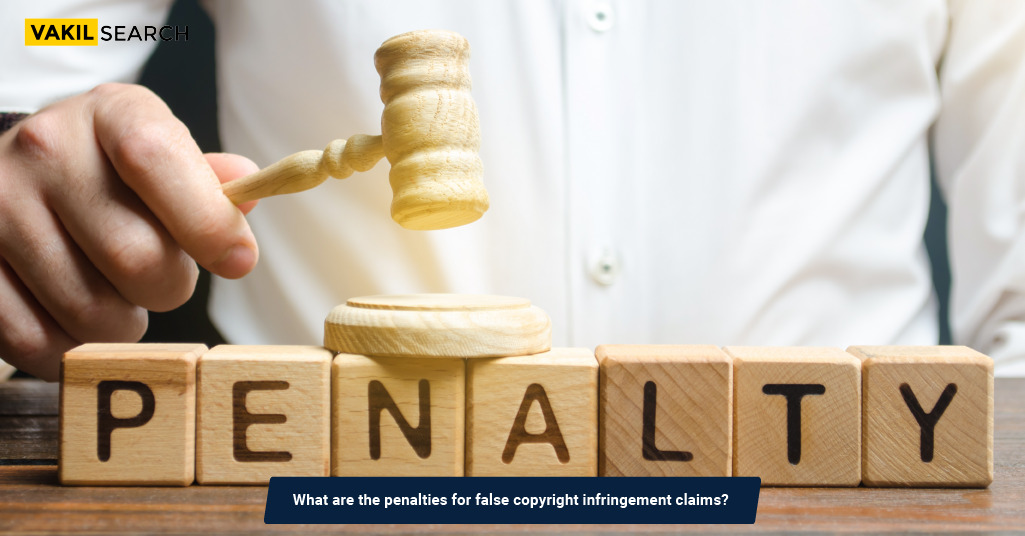Discover the serious legal and ethical implications of falsely accusing copyright infringement in the U.S. Understand fair use and act responsibly.
Overview:
Copyright infringement is a serious matter, but falsely accusing someone of it can have significant legal and ethical repercussions. In the United States, where freedom of expression is valued, making false copyright claims can lead to various penalties. This article explores the potential penalties for false copyright infringement claims and emphasises the importance of accurate assessment before taking legal action.
Understanding the Fair Use Doctrine
The fair use doctrine grants some freedom to creators, allowing them to use portions of others’ work for purposes like criticism, parody, or commentary without seeking explicit permission, provided certain conditions are met. However, misinterpreting fair use can lead to false copyright infringement claims.
The Consequences of Misusing Copyright Claims
Misusing copyright claims by accusing someone falsely of infringement is legally, financially, and ethically unsound. Taking such action can result in severe consequences that can impact both parties involved.
Risk of Lawsuits and Jurisdiction Challenges
Sending a cease-and-desist letter without valid grounds can provoke the accused to file a lawsuit in their jurisdiction, naming you as a defendant and seeking a declaratory judgement of invalid copyright. This can lead to legal battles and associated costs.
A false and bad-faith Digital Millennium Copyright Act (DMCA) takedown notice constitutes perjury. If the takedown notice doesn’t state a real claim and is intended to harass, the sender can face legal actions and penalties for lying under oath.
Financial Liabilities for Frivolous Lawsuits
Initiating a lawsuit for copyright infringement with malicious intent or without substantial evidence can backfire. If the case is dismissed due to lack of infringement, the defendant may seek attorneys’ fees, forcing the false claimant to cover their legal expenses.
Unintentional Meritless Accusations
Even well-intentioned individuals can make meritless accusations due to a lack of understanding or knowledge about copyright laws. It’s crucial to ensure a thorough analysis of a situation before claiming infringement to avoid unintentional false accusations.
Seeking Legal Guidance Responsibly
Before making any accusations of copyright infringement, it’s essential to seek legal guidance to accurately assess the situation. Organisations like New Media Rights offer legal services, providing advice on whether a claim is valid and guiding through the appropriate legal steps.
Ethical Implications and Professional Integrity
Accusing someone of copyright infringement without proper grounds raises serious ethical concerns. It’s essential to maintain professional integrity and ethical standards in intellectual property matters to avoid tarnishing one’s reputation and credibility.
Damage to Reputations and Relationships
Making false copyright infringement claims can damage relationships and reputations within creative communities. Accusers risk alienating potential collaborators and facing backlash from their peers for misuse of legal mechanisms.
The Importance of Due Diligence
Performing due diligence before alleging copyright infringement is crucial. Thoroughly researching and understanding copyright laws and fair use principles can prevent unwarranted accusations and uphold the integrity of the legal system.
Educating Content Creators and Consumers
Educating both content creators and consumers about copyright laws, fair use, and the potential consequences of false claims is vital. Increased awareness can lead to a more responsible and informed approach to intellectual property matters.
Strengthening Copyright Enforcement Responsibly
To maintain a healthy balance between copyright protection and freedom of expression, it’s imperative to strengthen copyright enforcement responsibly. This involves careful consideration of evidence and adherence to legal processes to ensure accurate and justifiable claims.
Conclusion
Accusing someone falsely of copyright infringement can have serious consequences, both legally and morally. It’s essential to understand the fair use doctrine and seek professional legal advice before taking any legal action against potential infringement. Making accurate assessments and acting responsibly within the legal framework is crucial to maintaining the integrity of copyright laws and protecting the rights of all parties involved. For expert legal guidance and to navigate the complexities of copyright law responsibly, consider consulting with professionals from Vakilsearch, who can provide the necessary insights and support to ensure compliance and ethical conduct within the realm of copyright infringement claims.
Also Read,










